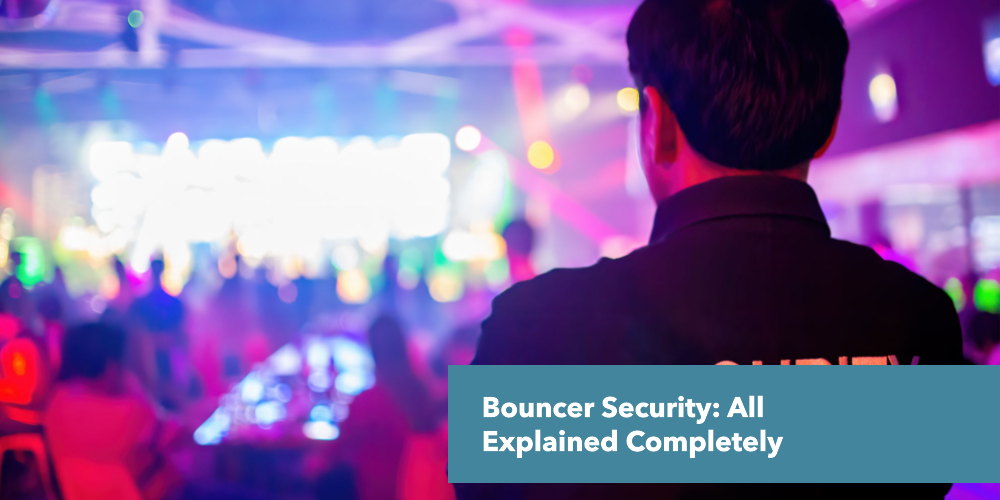What is a Bouncer Security?
Bouncer security refers to professionals hired to maintain safety, enforce rules, and manage entry at venues like bars, nightclubs, and events. They act as the first line of defense against potential disturbances, ensuring compliance with laws and venue policies while protecting patrons and staff.
What is the Difference Between a Bouncer and a Bodyguard?
The fundamental difference between a bouncer and a bodyguard lies in their scope of protection and clientele. A bouncer primarily focuses on venue security, managing crowds, enforcing rules, and preventing disturbances within a specific establishment like a bar or nightclub. Their role is to maintain order for all patrons.
In contrast, a bodyguard provides personal protection to a specific individual, often a high-profile or at-risk client. Their duties involve assessing threats, planning safe routes, and ensuring the client’s safety in various environments, including travel and private events. They act as a dedicated shield for their client.
What are Bouncers Used for?
Bouncers are primarily used for maintaining order and ensuring safety within specific venues.
Bouncers are essential personnel in places like nightclubs, bars, concert halls, and private events. Their main role is to manage entry, verify identification to ensure patrons meet age requirements (e.g., 18 or 21, depending on local laws for alcohol consumption), and enforce venue policies. This includes preventing underage entry, refusing entry to intoxicated or disruptive individuals, and checking for prohibited items like weapons.
Once inside, bouncers monitor the crowd for any signs of trouble, such as arguments or fights. They are trained to de-escalate situations calmly and, if necessary, to physically remove unruly patrons to ensure the safety and enjoyment of everyone else. Think of them as the front-line security for a public space, ensuring a safe and pleasant environment for you and other guests. They also act as a deterrent to potential disturbances; their presence alone often helps maintain order.
What are the Bouncer Skills and Qualifications?
Bouncers require conflict resolution, physical fitness, legal compliance knowledge, observational skills, and certifications (e.g., security licenses or training programs).
Bouncer Skills and Qualifications Explained
Conflict Resolution
You use verbal de-escalation techniques to calm disputes without violence. For example, training programs like California’s 16-hour security course teach strategies to defuse fights, reducing venue incidents by 30%.
Physical Fitness
You need strength to restrain aggressive patrons (many venues test for 50+ lb lifting capacity) and stamina to stand for 8+ hours. About 70% of job postings list fitness as a core requirement.
Legal Compliance Knowledge
You must understand laws like use-of-force limits or alcohol service rules. In the U.K., skipping the mandatory Security Industry Authority (SIA) license risks fines up to £5,000, while in Texas, improper ID checks can void a venue’s liquor license.
Observational Skills
You scan crowds to spot threats early, like fake IDs (used by 15% of underage drinkers) or concealed weapons. Training sharpens this experienced bouncer identify risks 50% faster than novices.
Certifications
You often need a state security license (e.g., $100–$300 fee in the U.S.) and first aid/CPR training (held by 35% of bouncers). Certifications prove competency and cut liability risks by 25%.
Are Bouncers Allowed to Carry Guns?
No, bouncers are typically not allowed to carry guns in most places. Their role focuses on de-escalation and physical intervention, not lethal force.
The laws regarding whether bouncers or other private security personnel can carry firearms vary significantly by country, state, and even local jurisdiction. In many regions, bouncers are considered private employees, not law enforcement, and therefore their authority is limited to that of an ordinary citizen when it comes to the use of force. This means they can use reasonable force for self-defense or to protect others, but often without the aid of firearms.
What is the Cost of the Bouncer in California?
The cost of a bouncer in California varies, but you can generally expect to pay between $15 and $26 per hour.
Location within California: Major metropolitan areas like San Francisco and Los Angeles tend to have higher rates than smaller cities. For instance, while the average hourly pay across California might be around $14.71, in San Francisco, it can be around $26 per hour.
Experience and Training: More experienced bouncers or those with specialized training will command higher rates.
Type of Venue/Event: The complexity and risk level of the venue or event can also impact the cost. A high-volume nightclub with a history of incidents might pay more for experienced bouncers than a quiet lounge.
Do You Need Bouncers?
We go beyond just providing bouncers, we deliver peace of mind. Our highly trained security professionals are experts in maintaining a safe and controlled environment, ensuring your guests can relax and enjoy themselves without a worry.
Whether you need a robust security presence for a large-scale event or a tailored plan that fits your specific budget, our team is ready to collaborate with you. Let’s discuss your needs and craft a solution that’s perfect for you.
Ready to elevate your security? Don’t hesitate to reach out! Contact us today or give us a call to speak directly with our team

